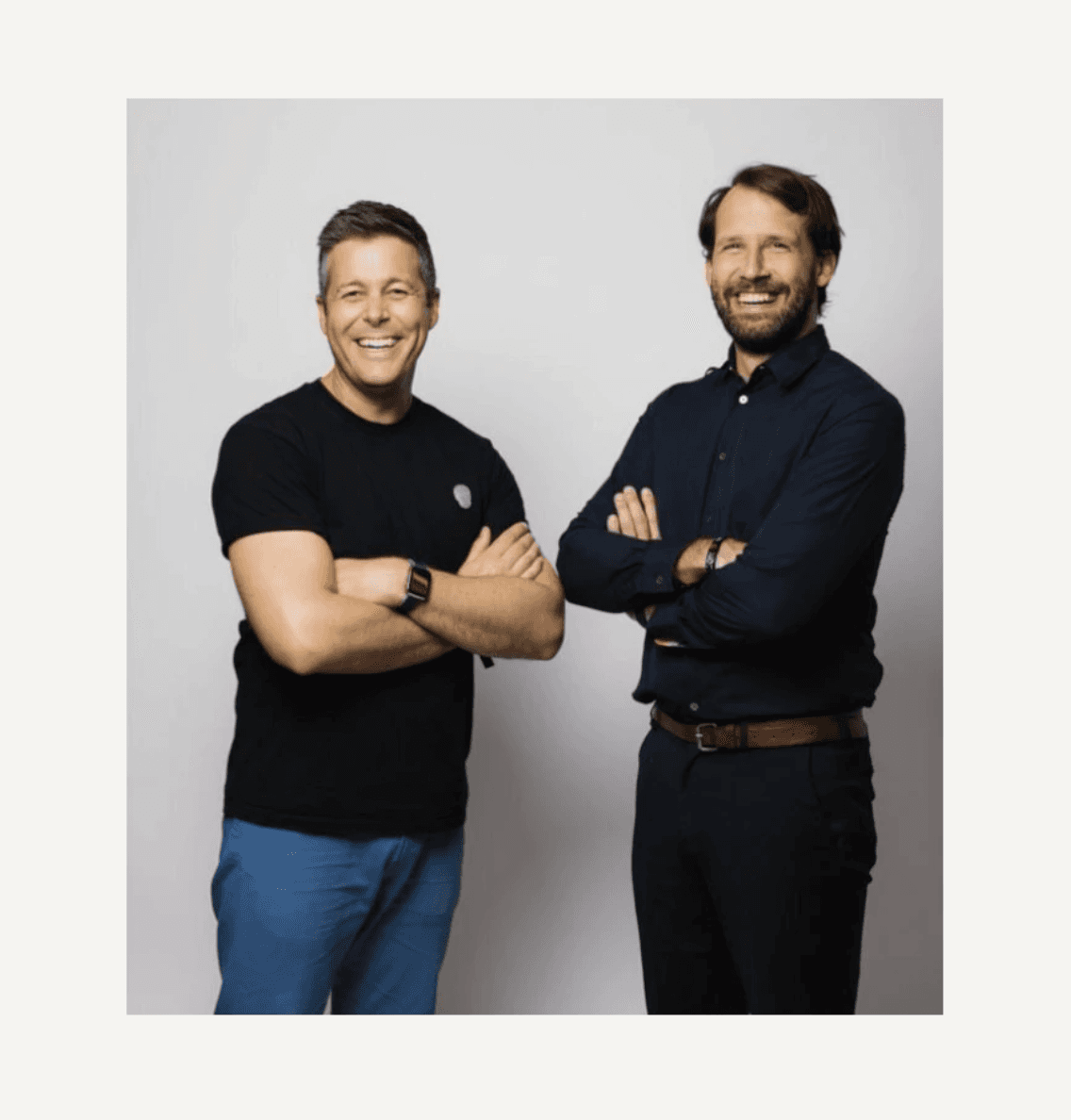May 15, 2025
5min read

Authors
EQT Ventures
Personal frustration at finding a holiday home set two German brothers on a journey that would reinvent the holiday let market
---
“It’s really, really hard to find and book vacation homes. Why isn’t this easier?” That was the question Johannes Siebers asked himself in 2013, after a holiday nearly gone wrong.
He and his brother Michael had wanted to plan a surfing trip to Portugal, but they ran into multiple hurdles: finding an available villa was a struggle and, after finally booking one, they had to send an off-site wire transfer – leaving Johannes to wonder whether the property would even be available when they arrived. Fast forward to a 2015 trip to Majorca and that is exactly what happened: they arrived to find another family already occupying the property. These frustrations and that simple question – ‘Why isn’t this easier?’ – inspired the brothers to found Holidu, a company that has since become a major player in the vacation rental market.
The two brothers, with their disparate working backgrounds – Johannes worked for a VC firm, Michael as an engineer at online retailer Zalando – brought different yet complementary strengths to the table. But one thing united them: a passion for building solutions that would address the fragmented, fragile holiday rental market. “We started thinking, you can book anything online now. Everything’s at your fingertips: a taxi, a pizza, a flight, a hotel, a car rental. You shop, and it’s there in five minutes,” Johannes explains. “Why not a vacation rental?”
Initially, the brothers envisioned Holidu as a meta-search engine that aggregated listings from platforms like Airbnb and Booking.com, allowing users to compare options seamlessly. In February 2014, they launched Holidu, bringing together their tech expertise and in-depth market research to create a product that could simplify vacation rental bookings.
Holidu’s meta-search model gained some traction, but the brothers quickly identified a deeper problem: most vacation rental properties were owned by individuals rather than professional companies. And those hosts lacked the tools, or the time, to manage their listings effectively. “If we wanted to do this really well for guests, we had to first help the hosts,” Johannes explains. “That’s the moment we shifted the strategy,” added Michael.
Holidu pivoted, and by 2015, began focusing on building a host-centric solution, Bookiply. As an aggregator, Holidu had not been able to build relationships with guests or hosts. Bookiply, on the other hand, allowed the brothers to move away from the meta-search model, own the customer relationship end-to-end and create long-term value beyond price comparison. This required more staff, and in turn more money – so they sought out investment.
An initial meeting with EQT Ventures in Munich convinced the brothers that they were the team worth courting. With multiple investors interested, it was the expertise that EQT Ventures already had in the holiday market that set them apart, particularly Kees Koolen and Marnix van der Ploeg, who had helped build Booking.com into an industry behemoth.
“We liked them,” says Johannes. “I think the big difference was their experience as operators.” The speed at which EQT Ventures moved also wowed the brothers. As the investor team travelled back from the Munich meeting, they sent the Holidu co-founders a list of questions and an invitation to a meeting in Amsterdam to thrash out the details of the great pivot – in three days’ time.
“Our initial investment thesis in Holidu was to ride this wave of tourism in Europe with two very complementary founders, creating another global winner in the space where Europe can actually be best – tourism,” says Lars Jörnow, partner and head of EQT Ventures’ Advisory Team.
The meeting took place in a rented room at Amsterdam’s Schiphol Airport. With no formal office at the time, EQT’s founding partners – including those seasoned travel and tech veterans – helped Johannes and Michael plan out Holidu’s path to success over several hours. “Others do an MBA and go to university,” says Michael. “But here you had the chance to talk to fantastic leaders, discuss problems and learn from them on the spot.”
It signalled a change in Holidu. “From that meeting onwards, we shifted our focus,” says Michael. They also had €5 million from an October 2015 Series A funding round, led by EQT Ventures, to help them build the team they needed to do so. Two years later, EQT Ventures reaffirmed its commitment to the Siebers brothers and Holidu by leading a second round of investment – a €15M Series B.
The funding round was just the beginning. “You have to build trust,” says Marnix van der Ploeg, operating partner at EQT Ventures. “If you invest in a company, and you don’t spend enough time with the founder, there is no trust. Especially in the early days, we visited Holidu quite a lot – and there you build that relationship.” It would stand Holidu in good stead in the near future.
Over the next few years, Holidu tested its new approach in specific markets, starting with Majorca, where their research had told them property cancellation rates were usually high at around 70 to 75%. The team refined their product by addressing hosts’ pain points: optimising pricing, automating listings, and providing tools for seamless property management. Majorca was a testing ground where Holidu finessed their thinking – and they eventually expanded to five other markets.
This methodical approach paid off. By 2019, Holidu was managing around 3,500 properties across Europe run by close to 1,500 hosts, being serviced by about 180 Holidu staff. The company was gaining traction in multiple markets and attracted further investment, including a €40 million Series C round, enabling the team to scale operations and expand their reach. “We realised we were onto something,” Johannes recalls. “We raised the funding round to double down.”
The Series C funding had taken a year to come to fruition, admits Michael. “It was really intense,” he says. “But we got the money, and I thought: ‘2020 will be a great ride – a year to double down on our model.’” He was so confident in the business’s continued success off the back of a booming holiday market that he had proposed to his partner, and planned the wedding for 2020.
You know what’s coming next. In early 2020, the Covid-19 pandemic brought global travel to a standstill. Bookings plummeted to zero almost overnight. The first signs that something was wrong came through Holidu’s internal dashboards as bookings from the Netherlands to northern Italy, an early epicentre of the virus, plummeted. The team began worrying about what the worst-case scenario could be if it expanded. “It didn’t take too long until the worst case happened,” says Johannes. Within a month everything went to zero. “Like, literally to zero.”
The company acted quickly. Rather than downsizing dramatically, Holidu chose a different path: hibernation. They furloughed most of their team, maintaining only essential functions like customer support and technology. The brothers focused on data analysis, monitoring Covid-19 trends and government policies to predict when travel might resume. “We had the hypothesis that, after a prolonged lockdown, people would be allowed to leave their houses,” Johannes explains. “We thought there’s a decent likelihood that in the summer people will be allowed to make some local travel.” So they prepared for that: while competitors continued layoffs, Holidu began preparing for travel’s return – a gamble. “Each crisis brings an opportunity,” says Marnix van der Ploeg of EQT Ventures.
It was a gamble that paid off. When restrictions eased in summer 2020, domestic travel surged. Holidu was ready, thanks to their lean operations during the pandemic. They brought their team back gradually, ramped up marketing, and even acquired smaller competitors to strengthen their position. “We were fully ready, fully energised, and ready to attack,” Michael says.
By 2021, the business had not only recovered but was surpassing pre-pandemic levels. Their host-focused solutions gained even more traction as property owners sought reliable partners to manage the post-Covid travel boom. And Michael managed to get married. “We had a big party in the park, because we couldn’t rent anything,” he says with a smile. A $45 million Series D raise also came that year.
EQT Ventures, which had supported Holidu from its early days, was instrumental during the dark days of Covid. The investors stayed close with the founding team, supporting them as they sought to stay afloat during difficult times – and reminding them that they had invested for the long haul, rather than quick gains. “We’re not the kind of VC that walks away if a company misses budget one year,” says Lars. “Our goal is to be the most impactful long-term partner to the founders we back.” Johannes looks back with fond memories at the weekly Sunday evening calls with EQT Ventures. “It shows how committed they are to build leaders and big companies, and to build a big company out of Europe,” he says.
Today, Holidu manages tens of thousands of properties across Europe and has become a go-to platform for vacation rentals. Holidu and Bookiply, the subsidiary host solution, merged in 2023. The company’s solutions, which were once an experiment, are now becoming industry standards. The firm employs around 650 people, oversees over 50,000 properties and has surpassed €1 billion in holiday home sales.
“Looking at where they are today, and when you see the graph from when they started, there is a steep line going up in GMV and revenues,” says Marnix. “That looks pretty easy when looking back, but it hasn’t always been that easy.” As Lars puts it: “It took patience and resilience on their side to keep working on it and keep improving it, until they found something that worked, and then scale it.”
A decade on from that initial investment, Holidu has seen steady growth in the face of adversity, and a model that the brothers hope to continue. “We have gone from 0.1% of the market to 1%,” says Johannes. “In the next ten years we want to keep growing, keep expanding, and keep working every day to make it a little bit better,” he adds. “Ten years from now, I think we will look back and think the company today was very small.”





















































































































































